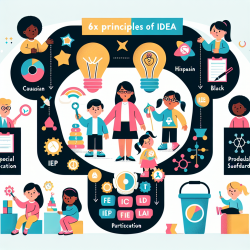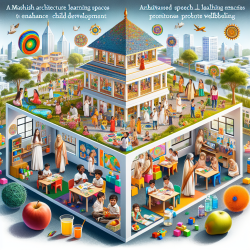Introduction
In today's global landscape, the challenges faced by displaced adolescents, particularly those from the Middle East, are profound. The journey of migration, compounded by the stressors of adapting to a new culture and language, places these adolescents at heightened risk for mental health issues. However, a recent pilot evaluation of the 'Forward with Peers' (FwP) intervention offers promising insights into how schools can play a pivotal role in supporting these vulnerable populations.
The Power of School-Based Interventions
Schools are uniquely positioned to provide a supportive environment for displaced adolescents. The 'Forward with Peers' program, evaluated across three high schools in the Detroit Metropolitan Area, is a testament to the potential of school-based interventions. This 10-week program is designed to enhance social and emotional learning (SEL) and life skills among first- and second-generation Arab immigrant and refugee adolescents.
Key Findings from the FwP Evaluation
- Statistically significant improvements in overall perceived social support and support from someone special in one's life.
- Marginally significant improvements in resilience and perceived social support from family.
- Positive trends in reducing loneliness and suicide ideation, and enhancing school belonging.
These findings highlight the efficacy of culturally adapted SEL programs in fostering resilience and social support, crucial for preventing mental health disorders in this demographic.
Implementing the FwP Approach
For practitioners looking to enhance their skills, the FwP program offers a blueprint for success. Key components include:
- Adopting a strengths-based approach that emphasizes resilience and positive contextual factors.
- Incorporating transformative SEL principles that promote critical examination of individual and contextual factors.
- Facilitating trauma-informed sessions that respect cultural and religious practices.
By focusing on these elements, practitioners can create a supportive environment that not only addresses the immediate needs of displaced adolescents but also empowers them for future success.
Encouraging Further Research
While the pilot evaluation of FwP provides valuable insights, there is a need for further research to fully understand the long-term impacts and potential for broader application. Practitioners are encouraged to explore additional studies and contribute to the growing body of evidence supporting SEL interventions for displaced adolescents.
Conclusion
The 'Forward with Peers' intervention is a beacon of hope for displaced adolescents, offering a pathway to improved mental health and wellbeing. By embracing culturally adapted SEL programs, schools can play a transformative role in the lives of these young individuals. Practitioners are invited to delve deeper into this research and consider how they can implement similar strategies in their own practice.
To read the original research paper, please follow this link: Supporting social emotional learning and wellbeing of displaced adolescents from the middle east: a pilot evaluation of the ‘forward with peers’ intervention.










